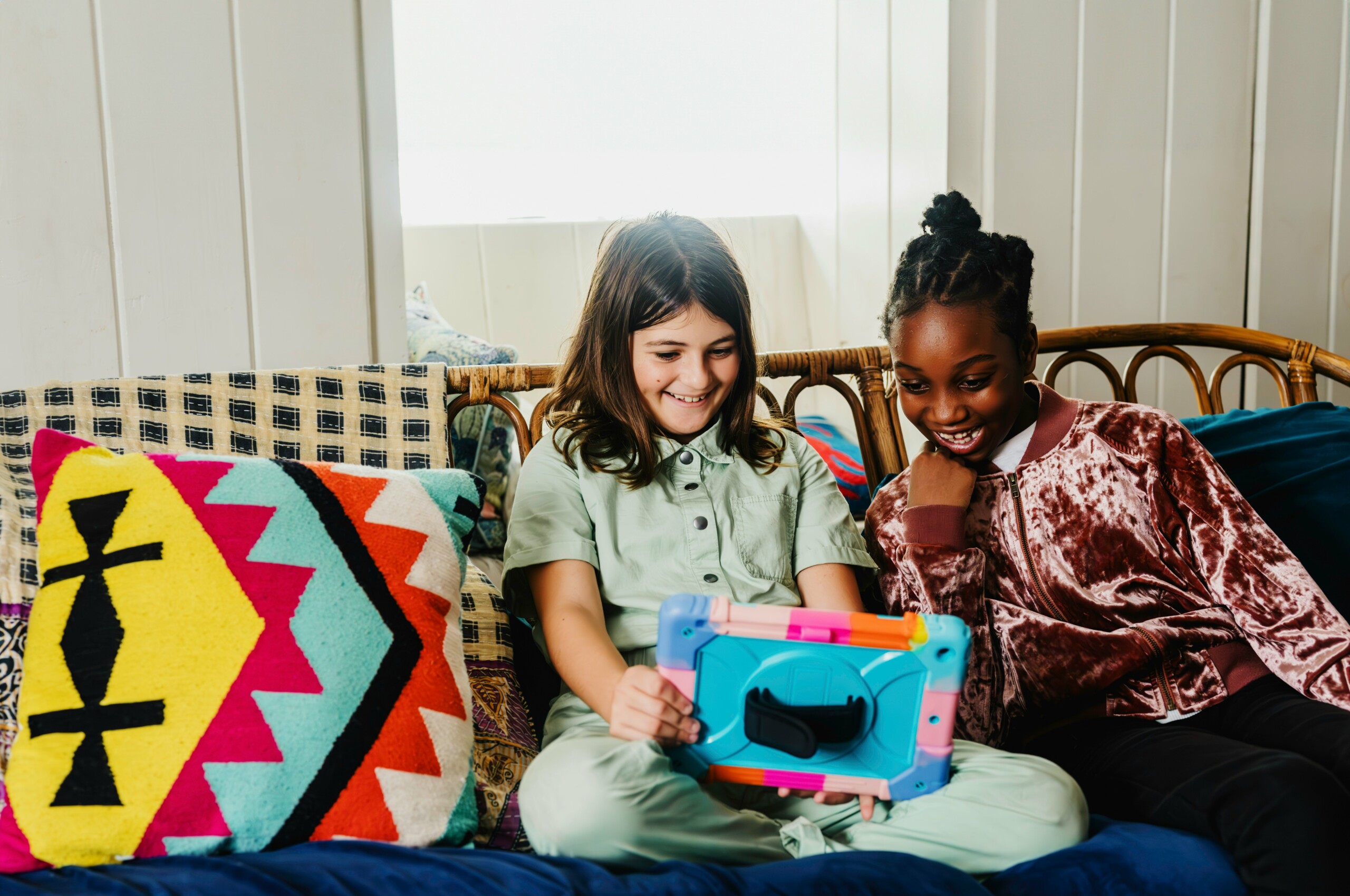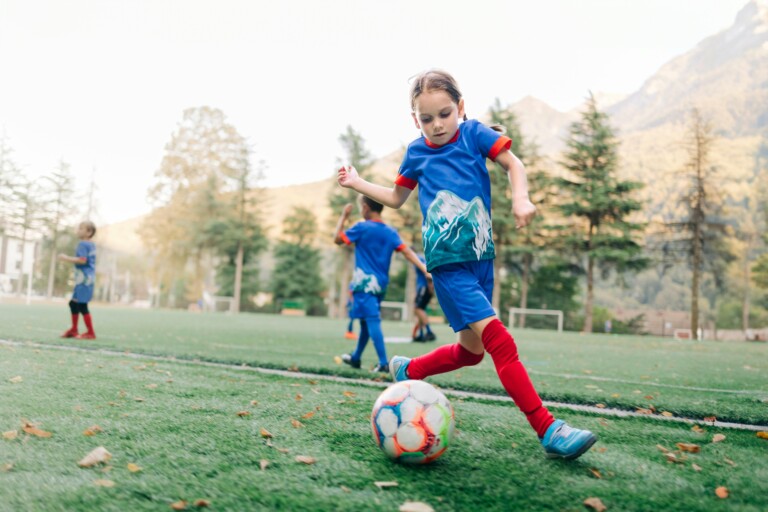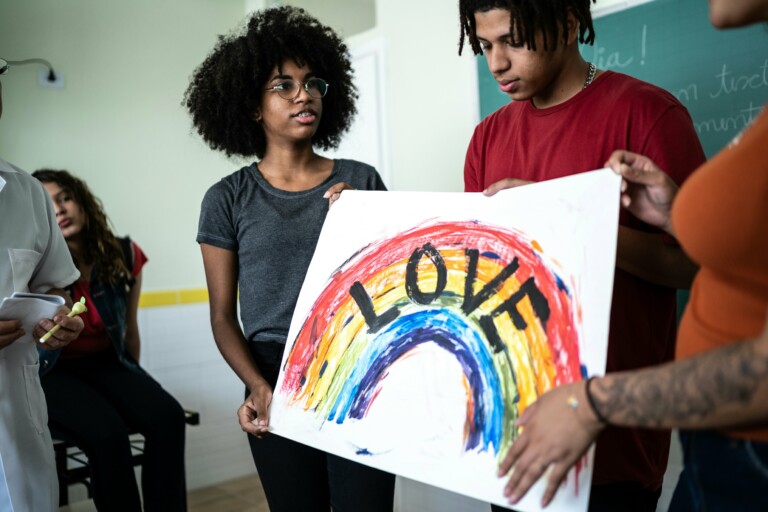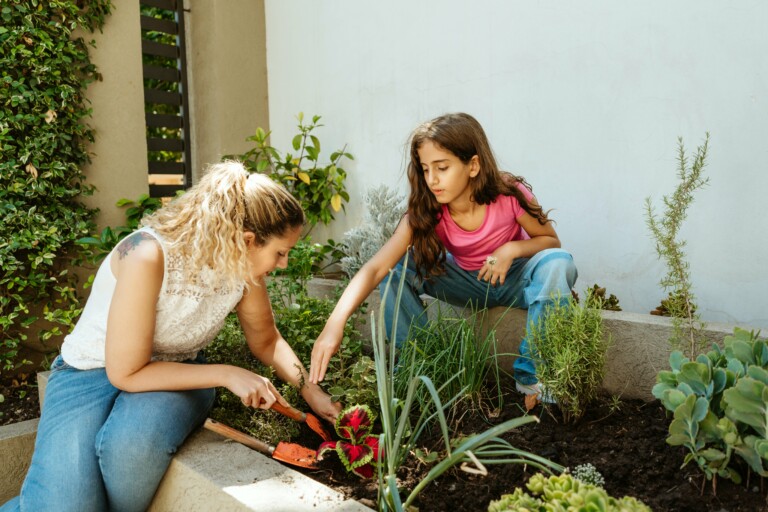OK, But How Involved Should We Actually Be In Our Kids
One thing I was fully not prepared for when I became a mom is how much I would worry about my kids’ friendships. Even when they’re tiny little potatoes rolling around on a blanket during a playdate, you worry about it. You invest time and energy into making connections for them, putting them in preschool so they can “be socialized,” encouraging them to say hi to other kids at the park and to share their toys.
I wish I could say that this is a worry that fades as your child gets older — like letting them sleep with a blanket — but it’s not. Now that my oldest is 10, I spend way more time thinking about her friendships and how they’re going, and it’s led my husband and me into some deep conversations. How involved should we be in our child’s friendships?
“The first step is to prioritize what it is you’re worried about or what you think you need to invest your time into regarding your child’s friendships,” Maryann Davis, a family counselor in Georgia, tells me. “Are you wanting to be involved so you know the kinds of friends your child is making? Are you wanting to be involved so you can make sure there’s no bullying happening? Are you just trying to be involved so that you can feel included in this part of your child’s life?”
Davis says there is no right or wrong answer here, but whatever it is about your kids’ friendships that make you wonder if you should interfere or get involved is important. “That’s what will help you decide how involved you should be. If you’re trying to protect your child and have heard things about their friendship with someone that gives you pause, I think it’s OK to ask your child to explain the situation to you and give them advice on how to proceed. If you simply think a friend of theirs is a bad influence and you want to intervene, really ask yourself why that is and what it is about this particular friendship that gives you a red flag,” she adds.
For most families, being involved in your child’s friendships is as easy as just being involved in your child’s life. Ask them questions and get specific about who they played with at school today and how their group of friends is doing. Listen when they share stories with you about what one friend did that day, and encourage open communication where they feel comfortable telling you about their day. For my own 10-year-old, that communication looks a lot like me asking her who she sat with at lunch, if she worked on any group projects with her friends, how her bestie is feeling about their sibling going off to college — questions that open up the space for me to hear detailed descriptions of her friends.
I’m never too worried, but this kind of communication is also a way to catch any subtle bullying or manipulation that can often happen in friend groups. Davis agrees, saying that the more you get to know your child’s friends, the more you can give your child specific advice for any future friendship issues or moments. “For example, if you hear from your child that two friends in her friend group are arguing and they give you the details, you can talk to them about how that argument makes them feel and how they wish their friends had handled it. It can give you the opportunity to chat about the different ways people act and how moments like this can affect a friendship — but also how they can recover from it,” she says.
The bottom line? You should be involved in your child’s friendships. You should know who their friends are and how they feel about those friends. You should be able to talk to them about issues popping up in their friendship groups so that you can give them advice, but also trust your child’s instincts when it comes to choosing friends.
“Generally, you can trust that a child gaining a friend is a good, innocent thing. You don’t have to project your own social anxieties onto them,” Davis says. “Most friendships for kids are pure. It’s when they get a little older that more things are likely to pop up, and by then, you should have created an open line of communication for your child to bring you their worries and problems with their friends.”
Building your child’s confidence and empowering them to make good choices will help them navigate their friendships. Says Davis, “By teaching your child how they should be treated — and how to stand up for themselves and call out others’ bad behavior — they can feel confident in navigating friendships without you. You’ll still find that they may have difficulties with conflict or with friends who try to pressure them to do things they don’t want to do, but again, it’s all about communication.”
So, talk to your kids. Ask about their friends. Get to know their friends. Invite them over and talk to them about their school day and what they like about their classes and teachers. Once your child’s friends see you as a trustworthy person, too, you can fully feel invested in their friendships without having to interfere.
Information contained on this page is provided by an independent third-party content provider. This website makes no warranties or representations in connection therewith. If you are affiliated with this page and would like it removed please contact editor @saratogasprings.business






